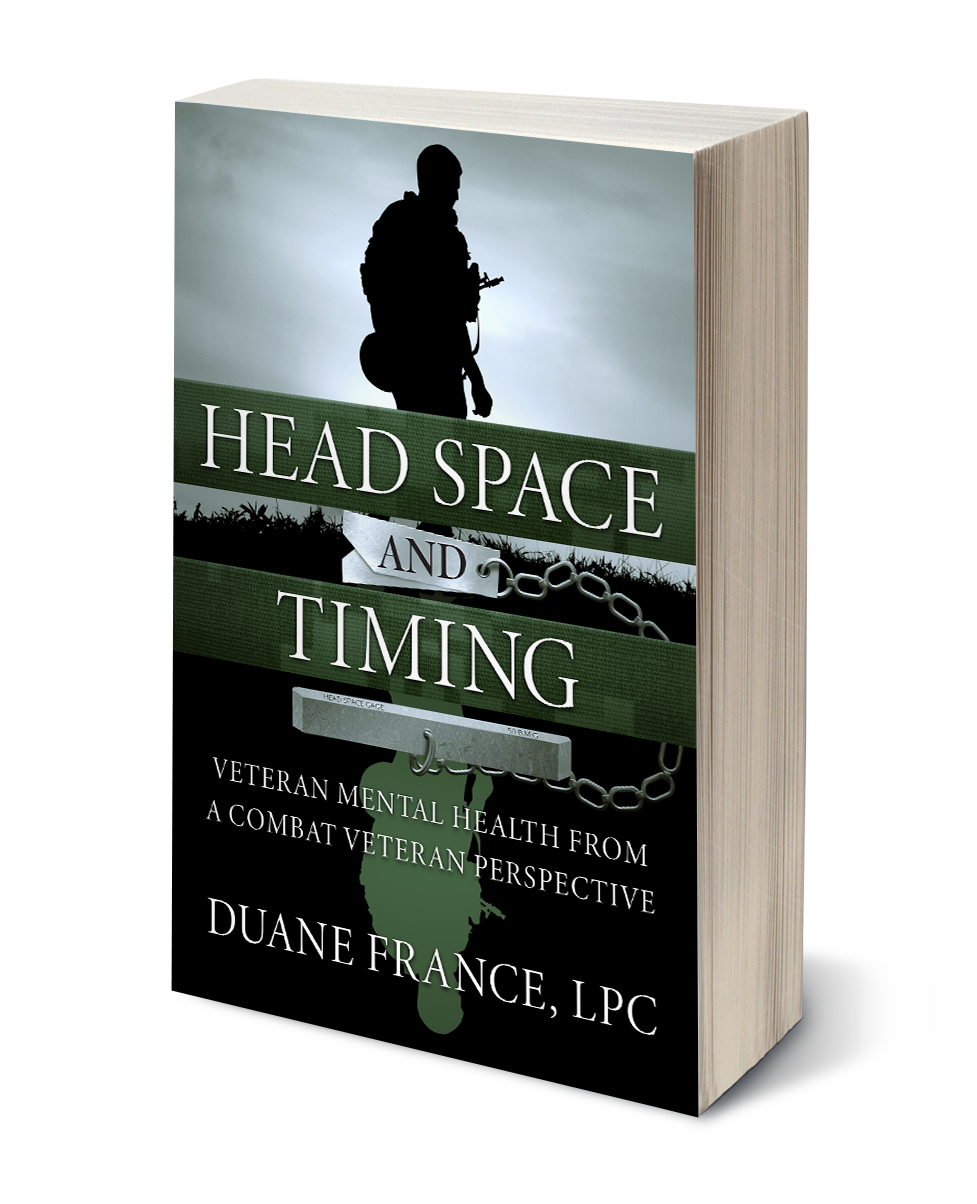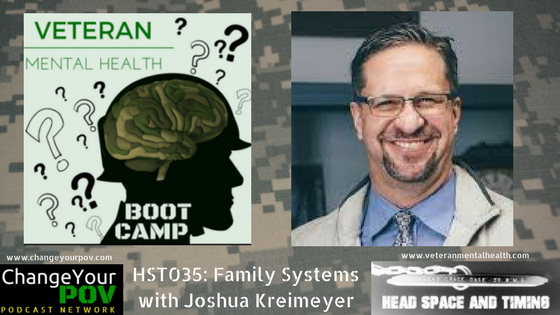A veteran you care about is hurting. Everyone can tell, it seems, but the veteran themselves. They’re withdrawing from others, speaking less, can’t seem to control their emotions. They’re anxious all the time, angry at little things, or constantly depressed. Maybe they’re drinking too much, or engaging in reckless and dangerous behavior. You’ve suggested that it could be possible to find someone to talk to, maybe to get some help. Your attempts to reach out are rejected. They lose their temper, say that you’re making it all up, there’s nothing wrong with them.
What can you do?
This can be a challenging situation for those who care for veterans. Maybe you were in the military, and it’s a fellow veteran. Or it’s a family member: child, sibling, or grandchild. Maybe it’s your spouse or your parent. Regardless of the relationship, helping someone get help can be difficult. You feel like you’re on your own, there’s little you can do that seems to make a difference.
Support, Don’t Harass
I’ve had a number of clients come to me and say, “My wife says I have to get help or she’s gone.” Their spouse is so desperate as to start giving ultimatums: get therapy, or else. That “or else” can be challenging, because it may be seen as a threat. It is also borne out of frustration, though. It’s as if, “I’ve tried everything else, so drawing a line may be my last option.” On the other hand, a veteran doesn’t need much of a reason to avoid therapy, and we can be pretty stubborn. Even infuriating sometimes…ask my wife. This is when things can be challenging.
The key to helping a veteran into care, however, is to be supportive and persistent without being overbearing. In a 2018 evaluation of Department of Veterans Affairs Mental Health services, veterans who have a supportive personal network were more likely to seek care. While this study specifically looked at Post 9/11 veterans, it found that those who had significant others who support seeking treatment were more likely to do so. It can be difficult, if you’ve tried everything to get the veteran to see that there is something wrong, but just like anything else, simply being there consistently can help them eventually realize that they should reach out to someone.
Coaching Into Care
Helping a veteran seek help is a well-recognized challenge. The Department of Veterans Affairs has developed a Coaching Into Care program where those who care for service members can call or email licensed mental health professionals and discuss how to communicate with their veteran. This is a no-cost service provided by the VA for anyone who cares for a current or former service member. In partnership with the PsychArmor Institute, they have also developed a short online course on helping communicate concerns.
The Coaching Into Care web site has a number of tips for having a conversation with those served about seeking treatment.
- Be respectful and calm during conversations. No one enjoys ultimatums, demands, or overly emotional conversations. Being calm while someone else is not is a good way to help them calm down; getting as agitated as they are is a good way to escalate things.
- Be patient. It usually takes more than one conversation before most people accept the idea of seeking care. I had a client who was given a copy of my brochure. He left it on the front seat of his truck. His wife picked it up a couple days later and said, “what’s this?” “Nothing,” the veteran said, and threw the brochure in the glove box. A week later, the morning after an argument, he opens his lunch box to find my brochure in it with my name and phone number circled in red ink. He finally reached out because “I think she’s trying to tell me something.”
- Don’t argue or attempt to talk a Veteran out of their feelings, thoughts, and/or emotions. We can’t deny what someone is feeling or thinking. We may not see things that way, but we have to acknowledge that they do; telling them that they’re wrong, or stupid, or harmful will only cause them to shut down more.
- Allow the Veteran in your life to decide whether or not they want to talk about what they have experienced or what they are currently dealing with. I’ve seen this both ways; someone who supports a veteran wants to hear about what they went through, but the veteran doesn’t want to talk about it. Or, a veteran WANTS to talk about it, but the person they’re seeking support from doesn’t seem to care. Either way, simply listening is key; being respectful of what the veteran wants and needs.
- Do not take the Veteran’s social withdrawal or isolation personally. Be willing to invite them and accept that they may not want to participate. Let them know they are welcome to change their mind. The military is an inherently dangerous and stressful job. Things like that change people, and just because they were all about going to concerts or out dancing before doesn’t mean that they’re still into that. Again, this is about the veteran, not about us; being persistent and open will help the veteran understand that they’re always welcome.
- Avoid giving advice unless the Veteran specifically asks for it. Telling someone what they should do instead of what they can do is a good way to turn them off from hearing what you have to say. I don’t give medical advice or legal advice, because I’m not a doctor or a lawyer; even I avoid giving advice or telling people what they should do.
- Minimize distraction during conversations with the Veteran by turning off phones, TV, radio, etc. Be willing to limit conversations to 10 to 20 minutes at a time, if necessary. Think small steps. How often do we actually sit down and have a face-to-face conversation with no distractions? No video games, no cell phones, no TV. We spend a lot of time sitting next to someone, “talking,” like on the couch or in the car. Maybe at a meal or getting coffee or something, but even then our ability to have a real and honest conversation is limited.
The Ball is In Their Court
The challenge is that, even after all of this, the veteran you care about may not seek the help. For several years, I worked with veterans involved in the legal system. Many of them got treatment after something bad happened, when they should have gotten it before. I call them “thirsty horses,” the ones who are given every reason to seek help and still choose not to do so. That’s frustrating; I’ve experienced it myself. Ultimately, the choice is theirs, not ours. We can be supportive of them, listen to them, be there when they need it, but we also have to care for ourselves. Sometimes, we have to set boundaries to keep ourselves safe, and maybe even to keep them safe.
We must do all we can to support them, in appreciation for their service to our nation.
Do you want to help offset some of the costs of the Head Space and Timing Blog and Podcast? Want to show your appreciation and support? You can put some paper in the tip jar by going hereor clicking the button below
 Want to learn more about veteran mental health? The first HS&T Book has recently been released in paperback. Click on the image to the left or this link to purchase the book. See what people are saying about it: This compilation of Duane’s work is key and essential to anyone working with Soldiers and Veterans. Duane provides a senior NCO’s perspective with unmeasurable experience and knowledge on top of his natural gift for seeing numerous levels of humanality and the challenges faced by those who have served our country. I highly recommend it! – A.C.
Want to learn more about veteran mental health? The first HS&T Book has recently been released in paperback. Click on the image to the left or this link to purchase the book. See what people are saying about it: This compilation of Duane’s work is key and essential to anyone working with Soldiers and Veterans. Duane provides a senior NCO’s perspective with unmeasurable experience and knowledge on top of his natural gift for seeing numerous levels of humanality and the challenges faced by those who have served our country. I highly recommend it! – A.C.



